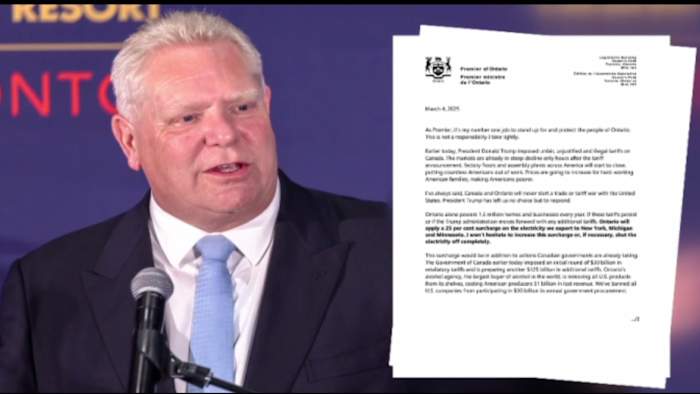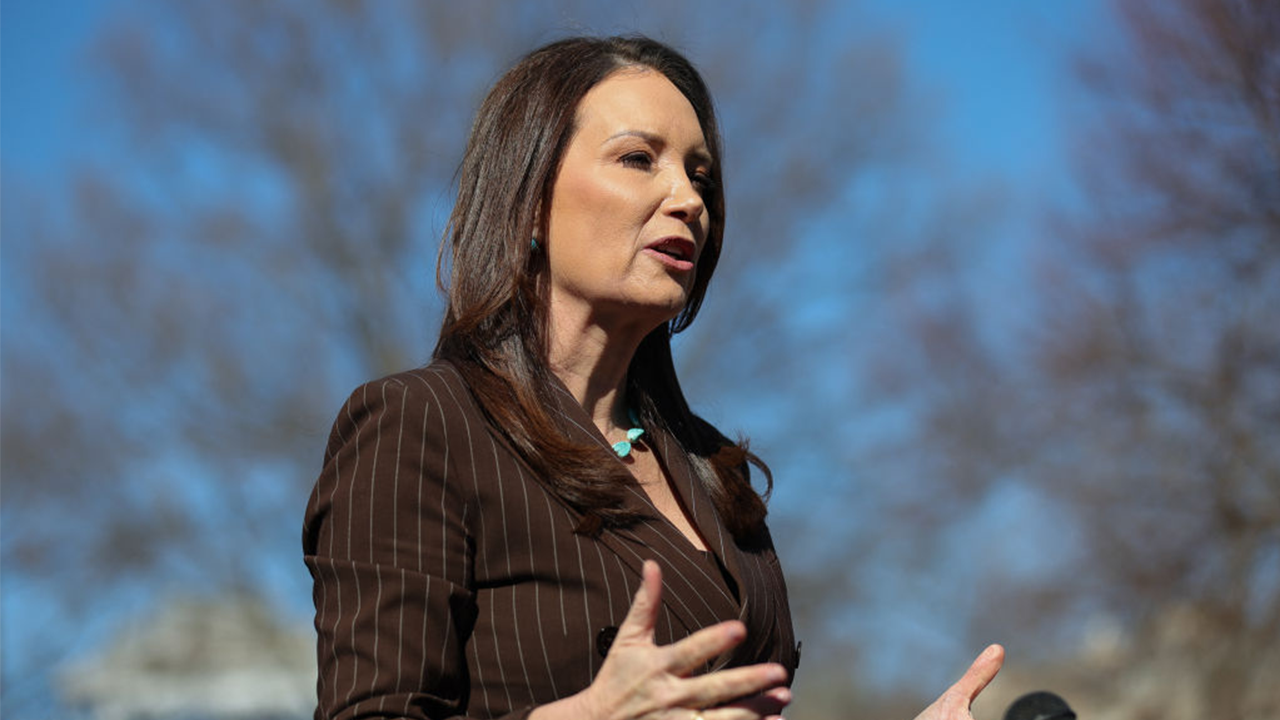Michigan
Meet Michael Hoover, a Republican candidate from Michigan for US Senate

Michael Hoover is running for Sen. Debbie Stabenow’s (D-MI) seat in 2024.
A “dedicated and passionate Michigander” (as described on his website), Hoover has a long history of serving others. His commitment to giving back inspired him to run for office. He believes Michigan and the country deserve better than what Democrats have delivered. He’s witnessed the cultural and economic decline of the country, and he thinks he can bring positive and meaningful change.
DEMOCRATS PUSHING FOR DEBBIE MUCARSEL-POWELL TO RUN AGAINST RICK SCOTT
“Our nation has fallen from its position as the unequivocal global leader it once was. As Michigan’s next U.S. senator, I’ll work tirelessly to get America back on track toward the kind of excellence we achieved in my youth, when the U.S. led in every conceivable metric: education, health, economic strength, manufacturing, art and culture, innovation, and military might,” Hoover told the Washington Examiner.
“With the right leadership and policies, we can reclaim American exceptionalism. This is why I’m running for Senate: to set a higher vision of what our nation can be and to deliver real, practical, and lasting solutions to make that dream a reality for everyone that calls Michigan home. I’ve experienced firsthand the boundless opportunities this country provides, and I want to ensure our children inherit that same brighter future as citizens of the greatest nation on earth,” Hoover said.
Hoover expressed empathy for many challenges facing Michiganders and others nationwide. He stressed the importance of family values and patriotism for the country. “As goes the family, so goes our state and our nation,” Hoover explained. It’s a good sentiment and vision that would be a welcomed change in the Capitol.
“The biggest challenge is the attack on America and our families,” Hoover said. “Our American values, government takeover of industry, inflation, crime, our health, open borders, and the threat of China top the list of issues.”
He listed some of the harrowing realizations that negatively affect the country, most notably the erosion of the American family, including the importance of fatherhood and families staying together — principles that once were commonplace but have long since been overlooked. He also mentioned several quality-of-life issues and how the Biden economy was crippling families.
“Only 26% of 18–34-year-olds are married, yet 47% have children. Only 20% of low-income families are married. Fatherhood has been forgotten,” Hoover said. “The cost of living is up 42% in the last three years, while salaries are stagnant. Deaths of despair are at an all-time high.”
Education was also crucial to Hoover. His concerns are clearly valid, given the recent reports of students graduating with 1.0-grade point averages or unable to pass standardized tests in math or reading. It’s a problem that’s also plagued schools in Michigan. He also mentioned the federal government’s reckless spending, including the billions of dollars in aid sent to Ukraine, all while Americans suffer.
“Our educational system is in shambles. Detroit has the lowest test scores of every major metropolitan city in the nation. Michigan has dropped to 38th in the nation,” Hoover said. “We’re funding an endless war in Ukraine while our border remains open, our cities crumble, and our families suffer.”
But Hoover is a man of solutions. He sees problems and tries to find ways to solve them. It’s been the basis for his accomplishments in his professional career while working for Dow Chemical Company, in small businesses, and in his charitable work supporting “local, national, and global” non-profits. He described what he would do on his first day in office.
“Talk is cheap. Legislation lasts. On my first day in office, I will introduce the ‘Protecting the Family Bill,’ which provides a financial incentive for couples to get and stay married, protects families and children from government intrusion and overreach, and supports and promotes our public safety workers,” he said.
He would also introduce the “By America, For America Plan.” This plan would provide “a tax credit for manufacturing and selling American-made products,” eliminate “China’s ability to acquire American land, buy U.S. businesses, or control America’s food production,” and would incentivize “entrepreneurial investment away from CCP-related businesses.”
“The last thing our nation needs is another elected talking-head, towing the party line, wasting people’s time and money,” Hoover said. “My goal for all 2,190 days of my term will be to solve problems by creating real and lasting solutions.”
Hoover also explained how he would represent conservative Republican values during his term if elected.
“The radical Leftist agenda, which thrives on creating new villains and victims, is dividing America in ways unknown to previous generations. The hypocrisy is astounding. Those who want to dictate to others how they should live accuse their opponents of being supremacists. Leaders who’ve created social dependency by implementing policies that remove fathers from homes then blame historical racism for current inequities. The purveyors of the most toxic anti-male rhetoric paint others as sexists,” Hoover said.
He listed numerous other scenarios where the Left has infiltrated and affected the country. From racial issues, COVID, climate change, and others, Hoover reinforced the negative consequences of the Left’s imprint on society.
“It’s the same tired playbook: create a crisis, then grab more power over people’s lives,” Hoover said.
Ultimately, Hoover illustrated how he differs from other candidates running for the same office.
“Since launching my campaign, I’ve proposed real, legislative solutions to the biggest issues facing our state and country,” Hoover said. “I’m also the only Republican candidate to have been invited to events hosted by the most important conservative movements in the country, including: Heritage Foundation, FreedomWorks, Council for National Policy, SoConCon (Social Conservative Conference), Club for Growth, and Becket Law.”
CLICK HERE TO READ MORE FROM THE WASHINGTON EXAMINER
“Michigan deserves a better future,” Hoover states on his website. “Let’s build it together.”
The Republican primary for Michigan is still months away. However, Michael Hoover is ready to show that he is precisely what Michigan and the country need.

Michigan
Texas-LSU, USC-Michigan headline women’s college basketball games to watch

Kiki Rice reflects on being a female athlete and the growing popularity of women’s sports
Kiki Rice reflects on women’s sports as a whole, what it mean’s to be a female basketball player, and how she expects it to grow in the future.
Sports Seriously
It’s conference tournament time in women’s college basketball, which means it’s the last chance to impress the selection committee.
The No. 1 seeds are still up for grabs. As many as eight teams can claim those coveted spots.
The Big Ten can become the biggest beneficiary and could see 12 teams in the NCAA Tournament, which would break an all-time record. Meanwhile, in the ACC, a No. 1 seed is virtually Notre Dame’s to lose if it can win the conference tournament.
After the trophies are hoisted, teams will have a week to rest before the Women’s NCAA Tournament Selection Show on March 16.
Here are five games to watch this weekend, each a rematch of a regular-season meeting:
No. 2 USC vs. Michigan, Big Ten semifinals
Time/TV: Saturday, 3 p.m. ET, Big Ten Network
JuJu Watkins, the front-runner for Player of the Year, continued her assault on the scoreboard, tallying 31 points and 10 rebounds as the Trojans held off Indiana in the conference quarterfinals. The Wolverines were impressive in their stomping of Maryland in their quarterfinal matchup.
Michigan is a different team than the one that lost by 20 to the Trojans in late December. To neutralize Watkins and keep the game close, Michigan must hit 3-point shots and get the Trojans in foul trouble.
No. 14 North Carolina vs. No. 8 North Carolina State, ACC semifinals
Time/TV: Saturday, Noon ET, ESPN2
The Wolfpack know what’s at stake. The tournament’s No. 1 seed also has a chance to break its way into a top seed in the NCAA Tournament if it can run the table this weekend.
North Carolina beat NC State 66-65 in Chapel Hill three weeks ago, handing State one of its two ACC losses. The Tar Heels’ balance on offense is enhanced with the return of Reniya Kelly and Alyssa Utsby, two of their four double-digit scorers, from injuries.
No. 5 South Carolina vs. No. 10 Oklahoma, SEC semifinals
Time/TV: Saturday, 4:30 p.m. ET, ESPN2
The last time these two teams played, in Columbia on Jan. 19, Oklahoma found itself down 19 after one quarter and ended up losing by 41. The things that get the Sooners beat showed up in that game as they turned the ball over 22 times, leading to 32 South Carolina points.
South Carolina, looking for its third straight SEC tournament title, got by Vanderbilt, nearly blowing a 25-point halftime lead. Chloe Kitts had 25 points and 10 rebounds, and the balanced Gamecocks also got 15 points from MiLaysia Fulwiley and 13 from Sania Feagin.
No. 7 TCU vs. No. 16 West Virginia, Big 12 semifinals
Time/TV: Saturday, 4 p.m. ET, ESPN+
The Horned Frogs, the regular season conference champions, got a scare from Colorado in the quarterfinals, but Hailey Van Lith’s five 3-pointers and 24 points were enough to advance. Sedona Prince added 18 points.
TCU awaits the fourth-seeded Mountaineers, who dispatched Kansas State in their quarterfinal matchup.
In their first matchup, a 71-50 TCU victory, West Virginia couldn’t get anything going offensively and shot 31%. The Mountaineers were dominated in the paint and on the boards and their two leading scorers, JJ Quinerly and Jordan Harrison, combined to score only 24 points. They must put up big numbers this time to advance.
No. 1 Texas vs. No. 9 LSU, SEC semifinals
Time/TV: Saturday, 7 p.m. ET, ESPN
The Tigers had lost two of three coming into the tournament but got right with a dominant win over Florida, while Texas and SEC Player of the Year Madison Booker needed every one of her 19 points and seven rebounds to squeak by Ole Miss.
The Longhorns are riding a 14-game winning streak and have probably locked up a No. 1 seed in the NCAA Tournament regardless of what happens. LSU is not out of the running for one of those slots but would need some help. The Tigers need to beat the nation’s top team first to get any consideration.
Michigan
What Ontario’s electricity threat over Trump tariffs could mean for Michigan

Ontario Premier Doug Ford has issued a formal warning to officials in Michigan, New York, and Minnesota regarding a potential 25% surcharge on electricity exports from Canada.
This measure is a direct response to tariffs imposed by President Donald Trump on Canadian goods.
Dan Scripps, chair of the Michigan Public Service Commission, addressed concerns about the potential ramifications of this surcharge on Michigan.
According to Scripps, the impact is expected to be minimal.
“Even though there’s a fair amount of electricity that moves through Michigan originating in Canada, very little of it is actually purchased by Michigan,” said Scripps.
The Midcontinent Independent System Operator (MISO), which oversees electricity management for 45 million Americans across 15 states, including Michigan, reported that in 2024, less than 1% of its energy was sourced from Canada, with less than half of that originating from Ontario.
This is equivalent to the output of just one power plant. DTE Energy has indicated that it generates the majority of its electricity domestically and only procures a small portion from within the United States.
The company also sources its natural gas domestically. Consumers Energy said it does not import electricity from Canada.
The company connects with Ontario for natural gas only when it is economically advantageous and emphasizes that it is not reliant on Canadian supply.
However, Consumers Energy is closely monitoring the situation to ensure that costs remain low for customers.
Scripps also noted that if Ford proceeds with shutting down electricity to Michigan, New York, and Minnesota, the electrical grid could become more vulnerable.
“It removes one layer of resilience from the system as a whole, and that can have really significant impacts. We saw what happens when those flows get disrupted, and then other things go wrong, back in 2003 with the blackout that covered New York City and all the way into Detroit and Ann Arbor,” Scripps said.
A spokesperson with Michigan Governor Gretchen Whitmer’s office has confirmed receiving Ford’s letter.
However, as of late Friday (March 7) afternoon, the governor’s office has not yet responded to Local 4’s request for a response to the letter.
Copyright 2025 by WDIV ClickOnDetroit – All rights reserved.
Michigan
Recruiting Roundup: Five-star QB sets Michigan visit for next month

The next six weeks are a key part of the recruiting calendar, with the Michigan Wolverines hosting several top recruits ahead of the spring game on April 19. Let’s dive into a few of those upcoming visits and more news on this edition of the Recruiting Roundup, kicking things off with a five-star quarterback.
Five-star QB set to visit Michigan next month
Michigan’s already got one five-star quarterback in Bryce Underwood, and the Wolverines are hoping to add another one. The mother of 2026 five-star quarterback Ryder Lyons told On3’s Ethan McDowell ($) they will be at Michigan on April 12-13.
While he’s technically a 2026 recruit, it’s important to note that Lyons — a member of The Church of Jesus Christ of Latter-day Saints — will be taking a year-long mission trip after high school. Meaning, he should be viewed as a 2027 recruit.
Lyons was named 2024-25 Gatorade California Football Player of the Year after throwing for 3,011 yards as a junior. He also had an impressive completion percentage (68.1 percent) while throwing for 46 touchdowns and six interceptions. He also ran for 585 yards and 14 more scores.
Michigan is pursuing Lyons aggressively, with head coach Sherrone Moore, offensive coordinator Chip Lindsey, general manager Sean Magee and tight ends coach Steve Casula all stopping by his school in January. Additionally, Lindsey made an additional trip to watch him throw.
It’s safe to say Lyons is among Michigan’s top targets at the quarterback position in this cycle, even with him technically being a 2027 recruit. We should know a lot more about where Michigan sits in his recruitment following his trip next month.
Four-star QB visiting Michigan later this month
Lyons isn’t the only passer visiting Michigan this spring, with 2027 four-star quarterback Trent Seaborn telling The Michigan Insider’s Brice Marich ($) he will be visiting Ann Arbor from March 28-30. It will be his first time in Ann Arbor.
The 6-foot-1 Alabaster, Alabama native is ranked 78th overall and ninth among quarterbacks composite. He’s got offers from pretty much every SEC school, plus Nebraska, Oregon, Washington and Wisconsin.
It sounds like Michigan’s biggest advantage in this recruitment is Seaborn’s connection with Lindsey.
“(Lindsey) offered me at North Carolina and has been recruiting me since seventh grade. We’ve built a good relationship. I think he’s a great coach,” Seaborn said. “We’ve talked a lot of ball and his style of offense is very similar to what we run at Thompson and being that he has deep roots in Alabama, college and high school, he knows Thompson and coach Freeman, my head coach, very well. He knows our style of offense and he’s seen a ton of my game film over the years and since we’ve had this long of a relationship he’s been able to see my growth.”
Surprisingly, Seaborn does not hold an offer from Michigan up to this point. With the Wolverines wanting to host him for a visit, it wouldn’t be a shocker to see him walk away from Ann Arbor with an offer.
2026 three-star TE discusses receiving Michigan offer
2026 three-star tight end Luke Sorensen picked up several offers last month, including one from the Wolverines.
In a recent interview with TMI’s Marich ($), Sorensen said Casula called him to give him the good news. Notably, Sorensen plays at Servite in California, the same school that soon-to-be first-round pick Mason Graham played at.
“I’m pretty interested,” Sorensen said. “They have one of the best tight ends in the game, so that speaks to the level of development they have. Definitely a big school, what they have done with Colston Loveland is awesome and I’ll try and get down to Ann Arbor.”
Nothing is officially in his calendar in terms of a visit, but that could change soon.
“Maybe,” Sorensen said. “It depends on my spring schedule, but I’ll make time for National Champs (laughter).”
Quick Hitters
- 2026 three-star wide receiver Jerquaden Guilford, who decommited from Penn State last week, picked up a Michigan offer.
-
News1 week ago
The Supreme Court just handed the Trump administration a win on USAID
-

 Politics1 week ago
Politics1 week agoChief Justice John Roberts pauses judge’s order for Trump admin to pay foreign aid contractors by midnight
-

 News1 week ago
News1 week agoBoat Crew Spots Thousands of Dolphins in a California Bay ‘Superpod’
-

 World1 week ago
World1 week agoWill the EU take on three new official languages?
-

 Technology1 week ago
Technology1 week agoEngwe Mapfour N1 Pro e-bike review: the new ‘premium’
-

 News1 week ago
News1 week agoMap: 4.8-Magnitude Earthquake Strikes Texas
-

 Politics1 week ago
Politics1 week agoHuntington Park, California, city hall and mayor’s home raided in $14M public funds probe
-

 Technology1 week ago
Technology1 week agoElon Musk’s SpaceX prepares for 8th Starship launch, pending FAA approval

















